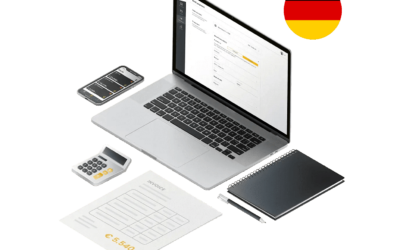Form for society
For those who decide to establish their own company in Germany, German legislation offers various organizational and legal forms for doing business. The most attractive are GmbH, UG and AG.
GmbH is the most common form, an analogue of the many countries limited liability corporation. In a GmbH, the liability of the founders for the debts of the enterprise is limited to the amount of their contributions to the authorized capital. The authorized capital deductions must be 25,000 euros, of which at least half must be paid immediately upon opening, and the rest can be added in subsequent years. The advantage is that it is allowed to fill the company’s authorized capital with ownership rights to things, real estate, pledges and other material assets.
AG is a joint stock corporation. The company’s authorized capital is converted into shares, which are distributed among the owners. The minimum initial capital is 50,000 euros. This form is most suitable for large or rapidly growing companies, since the advantage of a joint stock company over a limited liability corporation is the ability to attract investment through the issue of shares.
UG in its legal status is not much different from GmbH and is essentially only the initial form of GmbH. UG is of the greatest interest to entrepreneurs, since it allows them to open a business in Germany for those who do not have large start-up capital, because the amount of authorized capital can be either 2 euros or 24,999 euros.
The procedure for registering a company is quite simple; it can be divided into several stages:
Depending on the chosen organizational and legal form, different packages of documents for registration will be required. From the moment the documents are signed, the corporation can begin to work: enter into contracts, rent premises, etc. All this time, the company’s liability is limited to the personal property of each company founder (if there are several of them, in proportion to the shares in the authorized capital).
The Trade Register is a list of all companies and entrepreneurs, which is publicly available to anyone who wishes to view it. From the moment the company is published in the trade register, the corporation is liable to third parties only for the amount of the authorized capital, that is, the founders will be responsible for the corporation only with the property that they contributed to the authorized capital.
After receiving an extract from the trade register, it is possible to submit company documents to further organizations:
| customs |
Zoll |
| tax office |
Finanzamt |























































